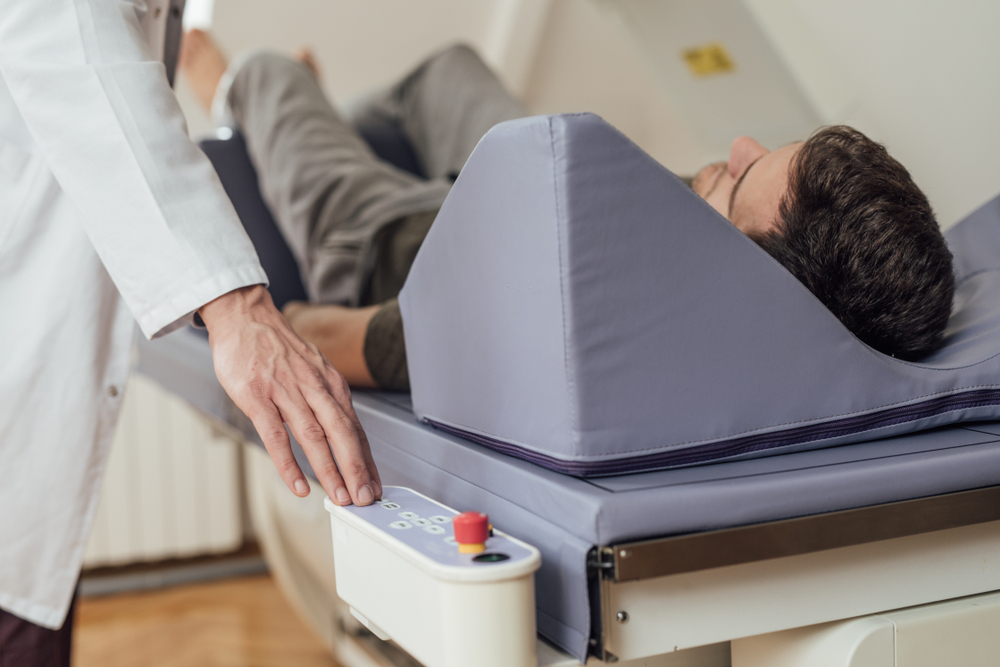The Sunshine Vitamin, Part 1: Shining A Light on the Vitamin D Debate
Posted by: Men's Health Boston in Uncategorized on March 24, 2023
Vitamin D is a hot topic in the post-COVID-19 era. With links to everything from bone health to immune defense to depression, it’s tempting to view Vitamin D supplementation as a sort of panacea, a “cure-all” medicine – and judging by the number of news articles published since 2020, that’s exactly what is happening.
In this month’s blog series, we’re aiming to help you wade through the hype and get to the root of the real question: does Vitamin D supplementation make sense for YOU?
The short answer to that question is that if you live above the 37th parallel (a latitude line that bisects the U.S. from Richmond, VA, through northern Oklahoma, and on to San Francisco, CA), you will most likely benefit from a Vitamin D supplement outside of the summer months. But how much you need depends on a variety of factors – your current health, your habits, your job, and your genetics. Stay tuned for more on that note in Part 2 of this series.

The Established Benefits of Vitamin D
Even amongst the skeptics of widespread Vitamin D supplementation, there are certain agreed-upon benefits. Chief among these is Vitamin D’s influence on calcium absorption in the intestines, and by extension, it’s an important influence on bone health.
Vitamin D exerts its effects by activating proteins in the intestinal lining that aid in transporting calcium across the intestinal barrier. Researchers estimate that low Vitamin D can reduce the absorption of calcium from around 30-40% to a measly 10-15%.
Complicating the issue is that bone health is a long-term game. As a child and young adult, your skeleton is constantly growing, with hormones helping to drive the development of new bone tissue. The majority of people will reach peak bone mass (PBM) by their early 20’s, at which point the emphasis switches to simply maintaining bone strength throughout the rest of their lifespan.
This doesn’t necessarily mean that your bones can’t get stronger later in life; there is good evidence that supplementing with Vitamin D and calcium, alongside weight-bearing activity, can substantially improve low bone density. However, it does mean that the development of osteoporosis starts a lot sooner than people realize, and if you aren’t taking action to minimize bone loss through your 40’s and 50’s, you’ll be playing against a stacked deck later on.

Because testosterone is protective of bone structure, men with low T for long periods of time often present with weakened bones. The same is true for women who have gone through peri-menopause and seen their estrogen levels fall off. A lot of the patients we see at Men’s Health Boston are already at an elevated risk of poor bone health, which is why we recommend preliminary DXA (pronounced “dexa”) scans in many of our new patients, and follow-up with Vitamin D testing any time we see low bone mass. The statistics are a lot more alarming than people realize, with some studies suggesting that 1 in 3 adults who experience a hip fracture after age 50 will pass away within 12 months.
The Controversy Over Widespread Supplementation
Vitamin D receptors are found in cells all over the body, with the capacity to regulate gene expression. Interestingly, low levels of Vitamin D have been associated with increased risk of widespread ailments, including Type 1 diabetes, multiple sclerosis, cardiovascular disease, depression, colon/prostate/breast cancers, and dementia.
Considering all of these potential benefits, it might seem difficult to believe there is controversy over whether or not Vitamin D supplementation is of value to the general public. Unfortunately, the data here gets a bit murky.
Part of the issue is that much of the research mentioned above is taken from observational studies. People with inadequate levels of Vitamin D were found to suffer from depression, anxiety, cardiovascular disease, cancers, type 1 diabetes, etc. at higher rates than the general public. However, just because there is an association between low Vitamin D and multiple disease states does NOT mean that low Vitamin D caused those problems, or that supplementing with it prevents those disease states.
In fact, when researchers have gone on to test whether or not taking a Vitamin D supplement protects against some of these conditions, the results have often come back showing no discernable effect. This was the case for a prominent 2019 study published in the New England Journal of Medicine (NEJM) showing no effect on cardiovascular disease or cancer prevention. A 2020 follow-up study in the Journal of the American Medical Association (JAMA) found no effect on self-reported depression.
Does That Mean Vitamin D Only Impacts Bone Health?
With so much uncertainty around the actual therapeutic benefits of Vitamin D supplementation, many critics have come out against blanket recommendations for the public. While we don’t think that is an unreasonable stance given the data, we hardly think the studies above have had the last word.
You can find a detailed critique of both the 2019 NEJM study on cardiovascular outcomes and the follow-up 2020 study in JAMA here, which highlights three very important points:
- Researchers did not differentiate well between subjects who were Vitamin D deficient and those who had normal levels at the start of the studies, a critical part of determining if Vitamin D supplementation is protective in those with low levels.
- For many subjects, blood testing was not employed over the length of the study to confirm whether the supplements were actually raising blood levels of Vitamin D, a clear indication as to whether they were working as intended.
- Because an “optimal Vitamin D level” has yet to be identified, it’s difficult to know if 2000 IU is an appropriate dosage.
In further support of these critiques, a recent 2022 study in the British Medical Journal DID in fact see a diabetes risk reduction with Vitamin D supplementation…but ONLY in patients who started out with Vitamin D deficiency, overturning previous data showing no effect.

Our Bottom Line on Vitamin D Supplementation
At MHB, we are quick to endorse Vitamin D supplementation. Given our location above the 37th parallel, the fact that most of our patients work indoors for the majority of the year, and the well-documented negative associations with low blood levels of Vitamin D, we feel it is appropriate for the majority of our patients to take a supplement in some form from November to April.
We are also major proponents of early DXA screening for skeletal health and Vitamin D testing to identify deficiencies, which allows us to make more targeted recommendations. Stay tuned for Part 2 of this series, where we will discuss the supplements and dosages we routinely prescribe to our patients and why.
If you or someone you know are suffering from fatigue, loss of motivation, low libido, or sexual dysfunction, we’re here to help. For more information on our industry-leading care at Men’s Health Boston, click here. For a clinical evaluation, call our office or schedule an appointment with one of our providers today.

